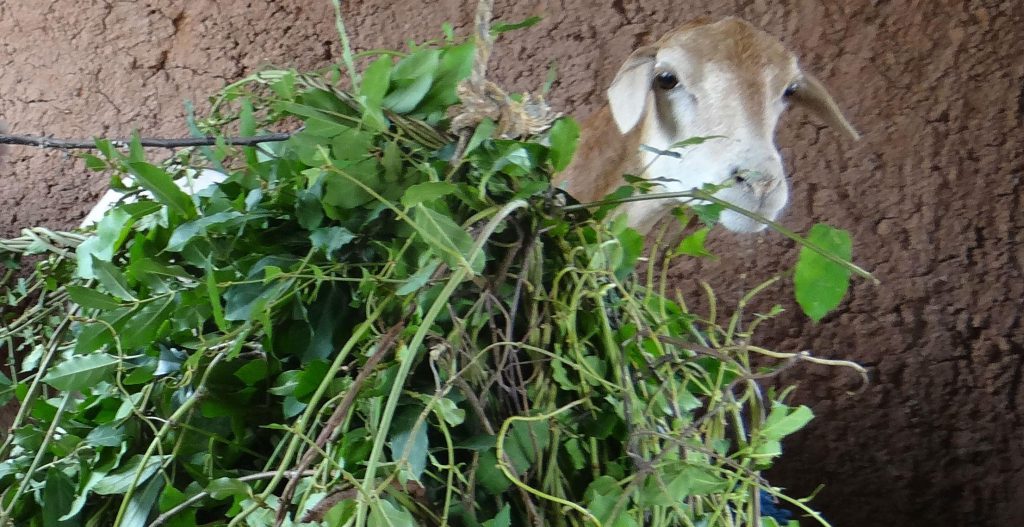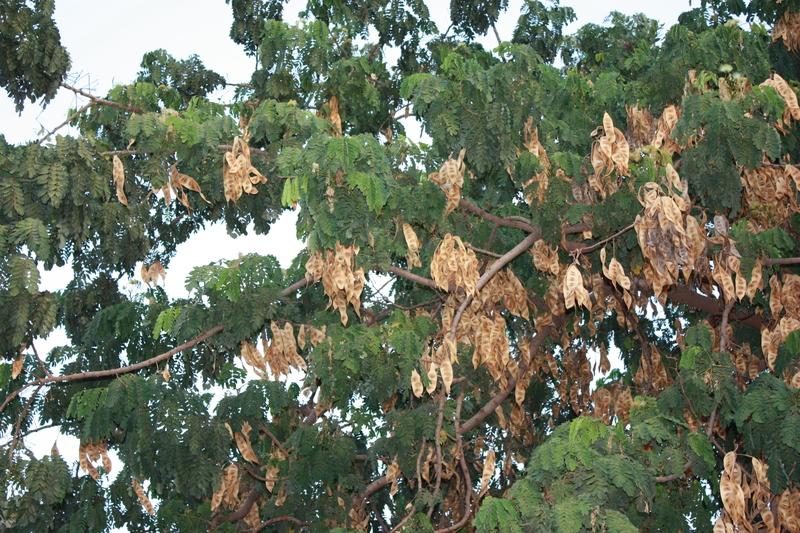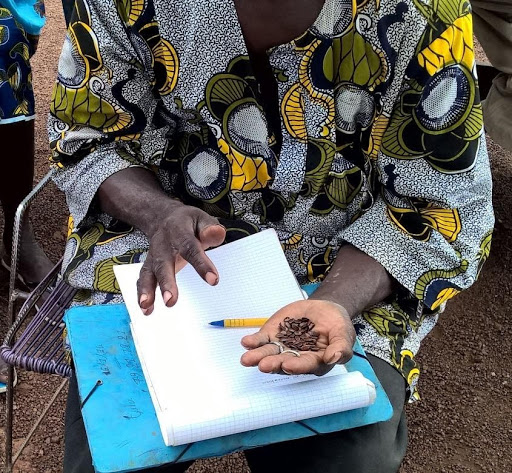In Mali and Burkina Faso, legume trees not only provide shade and combat deforestation – they also provide nutrients for humans and feed for goats and sheep. Species such as Moringa, Leucaena and Glyricidia are easy to grow in tropical climates, yet few farmers are aware of their many benefits. You can help educate them and provide the trees they need.
Common Pastures not only helps to plant trees – we also offer education to assist farmers in caring for them and to provide nutritious forage for their animals. Trees help to enhance soil health and combat the troubling issue of deforestation.
Maintaining and expanding perennial woody vegetation is increasingly an important priority for preventing desertification and providing much-needed fodder for livestock. Fuelwood, including charcoal, is the main source of energy in Mali. It is estimated that fuelwood makes up 85% of total energy consumption for activities such as cooking, heating and lighting (UNEP, 2011). According to the Food and Agriculture Organization (FAO), dependence on forest products generally increases when agricultural production is low due to droughts. Food products such as fruits, roots, barks, flowers, leaves and medicinal plants are traded and consumed at the local level.

During the late dry season, upon exhaustion of pastures and crop residues, high water content shrubs and trees make up a large proportion of high quality fodder intake by livestock. Shrub and tree fodder is thus crucial during periods of drought and during the late dry season when acute grass scarcities exist. Additionally, the increased planting of leguminous shrubs and trees have a number of attributes that could increase soil fertility, reduce soil erosion, hold moisture, stabilize climate, improve livestock nutrition and provide firewood. Vegetables can be intercropped with trees, taking advantage of the moisture and increased fertility of nitrogen-fixing bacteria of legume trees.
Different shrubs and trees in the Sahel produce valuable products besides fodder, such as fiber, fuel, fruits, and medicines. They also provide critical environmental services, such as soil fertility enhancement, mitigation of soil erosion, microclimate modification, and carbon sequestration. Because legumes frequently establish mutualistic relationships with nitrogen-fixing bacteria, their cultivation also has the potential to increase soil nitrogen availability for non-legume plant species.
The main benefits of shrub and tree fodder for livestock nutrition are their relatively high protein and mineral content. The concentration of crude protein in the leaves and fruit of fodder shrub and trees is often greater than 10% even during the dry season—significantly higher than crop residue in the 3-6% crude protein range. Legume tree fodder has been tested in the range of 20-30% crude protein. Adding 30-45% quality legume tree fodder into the daily ration has been shown to increase livestock body weight by up to 100 g per day for small ruminants. The increase in nutrient supply also improves livestock health and reproduction, and increases the time that animals remain productive. Cultivating shrubs and trees can increase quality fodder supplies for sale, thereby increasing smallholder incomes while providing a protein-rich feed supplement that should increase livestock body weight and dairy animal milk production with additional market value (ibid).

A focus on fodder shrub and tree species will allow for the concurrent production of fodder, along with fuelwood, while improving the environmental. Over 42 shrub and tree species have been identified as important for improving farmers’ livelihoods in the Ségou area of Mali. Thirteen shrub and tree species in this same area were identified and opportunistically harvested from wild stands specifically for fodder. Raising and managing leguminous fodder shrubs and trees has significant potential for improving livelihoods.
Women are very involved in these and similar small businesses such as nurseries. Non-wood forest products are increasingly being traded at the international level, including shea butter, tamarind, rattan and gum Arabic.
How You Help
Your donations will help us plant more trees and educate farmers on how to care for them. Families will learn how to use the trees for feeding their families and their animals and improving the environment.


